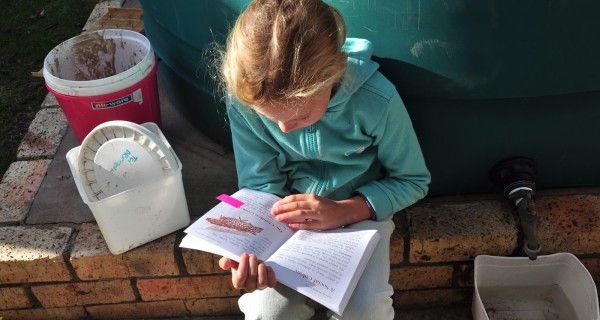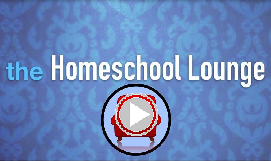"Home visits" and your legal rights and duties
A long standing member of the Trust contacted us yesterday to ask for assistance. The family use ACE to homeschool their children and, so far, it works well for them.
Several years ago, they applied to register their child(ren) with their provincial education department for home education. They ONLY made this application, because ACE requires proof of such an application before accepting orders.
(ACE has always done this as long as I know. They seem less interested in complying with the law than with pleasing whichever education officials happen to be in power at the moment, operating on the apparent assumption that whatever any education official says is "the law". ACE seems unconcerned about whether the demands of officials are legal at all, and about whether such demands are in the best interests of the children and families who are their clients. Some of their representatives have called this "Christian wisdom".
About twenty years ago their then owner, the late Dr Trevor Yoko and his son - the present owner if I understand correctly - even gave me a stern dressing-down for promoting compliance with the law instead of promoting their views of "Christian wisdom".)
The family never received any response from the department to their application, but they had the proof that they had applied, and were accepted as clients by ACE on the strength of that.
Last month, after many years, the family were contacted by the department and asked to submit a new application because the old one was "out of date". The family complied with the request.
Yesterday, the mother received a telephone call informing her that departmental officials want to inspect their home education at their home.
The mother contacted he Trust immediately, and we recommended as recorded in the letter below.
We also informed the mother that the Trust, having been asked to act on their behalf, will:
- In accordance the Promotion of Administrative Justice Act (PAJA) and the Promotion of Access to Information Act (PAIA). obtain from the department a detailed list of all the information that the officials intend to gather by entering the family home.
- Obtain from the department proof that the officials are duly authorised to ask for each of the items of information that they want to obtain. Any items of information that the family is not legally required to provide will be removed from the list after consultation with the officials.
- Obtain from the department proof that each of the remaining items on the list (i.e., all information that the officials are legally empowered to require) cannot be obtained by means that are less intrusive of the family's right to privacy.
- Any information for which such proof does not exist, will be removed form the list, likewise discussing it with the officials.
Our experience is that there will be no items remaining on the list. At best, if the officials insist, the family may need to post some records or "evidence of work done" to the department. At worst, the parents may need to meet the officials at the offices of the department or at a neutral venue, producing such records and/or "evidence".
See letter to Mrs X below (edited to protect privacy).
Kind regards, Leendert
__________________________
Dear Mrs X,
Our telephone conversation refers.
As we discussed, we recommend the following action:
- Wait until the department calls again (if ever).
- If they do, firstly identify the caller by name, post held and the office of the department in which this post is held.
- Ask the official to send their request for an appointment in writing (by post, fax or preferably email)
OR
ask them to make the appointment through your legal defence fund at 012 330 1337. - Call the Trust at the emergency number: [082...members only] and inform us of the events.
- Forward any written requests for an appointment to the Trust at defensor@pestalozzi.org
- Should any officials arrive at your residence unannounced, you would act completely in accordance with the law if you DO NOT ALLOW THEM TO ENTER YOUR HOME - unless you want them to out of your own free will (i.e. not under intimidation) or unless they have a court order empowering them to enter your home (a most unlikely event).
Remember:
Your children have a constitutional AND statutory right to the privacy of their home. (All children have a right to privacy. That means that the law protects them from interference with their way of life, their good name, their families and their homes.)
You have a legal duty to protect your children's right to privacy.
You also have a right to privacy of your own, and are protected form interference with you life, your family and your home.
Unlike in the case of your childrens' right to privacy, you have no legal duty to protect your own. You are free to relinquish your own rights to any extent you choose. You are NOT free to relinquish your children's rights. You may only do so if you are very sure that it is in their best interests to do so, and then you may only relinquish their rights to the extent that it is in the children's best interests to do so.
Your children's right to privacy, and yours, may be restricted by law under some circumstances, but the constitution emphasises, and so do many statutes (e.g. the Promotion of Administrative Justice Act) as well as common law, that the onus always lies with the responsible government official(s) to prove that:
a. Every aspect of the infringement of your children's right to privacy is reasonable and justified. They cannot just decide to interfere in your children's lives and enter their home without very good reasons, which they must provide beforehand.
AND
b. That they cannot achieve their legal, reasonable and just objectives (if they have them) by less intrusive means.
That means that, when officials gather such (and only such) information as they need to perform their authorised tasks, they must do so without interfering with you and your children more than is reasonable and necessary.
Kind regards,
Leendert van Oostrum
Pestalozzi Trust
==========================
This article is written by Leendert van Oostrum from the Pestalozzi Trust and is published on www.tuisskolers.org with permission.

Legal & Research
Centres
Support
Curriculums
Sunrise readers: From pre-reading ...
Parents and educators - these popular reading books with an ...
Has no content to show!





































Comments 5
Dankie vir jou insig Leendert
This is an excellent post. I think it is unfortunate that ACE requires that a family show proof of registration before being accepted to their program. New homeschoolers are not informed by ACE of their choice in the matter, and this irks me. Regisiration has to occur before you can receive any of the ACE curriculum, and obviously, parents are anxious to get started, and so comply with this ACE regulation. If they are not happy with the ACE curriculum, they may stop ACE, but, they remain registered with a DOE.... ACE advertises that they are "homeschool friendly" and yes, it does work for many families, but I feel they are not being open and honest about this matter. We are not obliged as homeschoolers to register. And a choice and variety of curriculum should be available to all homeschoolers, whether homeschoolers are registered or not.
RESPONSE RECEIVED FROM ACE
A.C.E. does require that parents wishing to educate their children using the A.C.E. system comply with the basic requirements of the South African Schools Act of 1996. The Act states that “parents wishing to educate their learners at home may apply to the Head of Department for the registration of a learner to receive education at the learner’s home”.
This practice is compliant with the published law and is not “an assumption that whatever an education official says is the law”. A.C.E. accepts that the administrative capacity and competence of officials is often lacking. However, A.C.E. does not prescribe to parents how they should interact or respond to officials requesting to visit the home of the learner being educated at home.
The proposed response by Mr Van Oostrum to the home educator in question is commendable and in fact supported by A.C.E. in the interests of ensuring that the rights of the learner and the Home Educator are not violated.
A.C.E. is however somewhat puzzled by the insinuation that the organisation is “less interested in complying with the law”. It would appear that the law is plain and simple when detailing the requirements for home education in South Africa. A.C.E. accepts that the implementation of the law by officials leaves much to be desired and Home Educators should ensure that they know their rights and are equipped to stand up to unlawful approaches which are foisted on them by uninformed Education Department officials. Organisations such as the Pestalozzi Trust are most helpful in assisting parents to understand their rights as Home Educators.
It is important to note that A.C.E. is a curriculum supplier and issues a SAQA-registered school leaving certificate to learners on completion of the prescribed course of study. A.C.E. is not a home education lobby group and applauds the work done by the Pestalozzi Trust in protecting the rights of Home Educators in South Africa.
BY : GRAHAM YOKO (from ACE)
South African Schools Act of 1996
Chapter 5
Registration of learner for education at home
51. (1) A parent may apply to the Head of Department for the registration of a learner to receive education at the learner's home. (2) The Head of Department must register a learner as contemplated in subsection (1) if he or she is satisfied that:-
(a) the registration is in the interests of the learner;
(b) the education likely to be received by the learner at home-
(i) will meet the minimum requirements of the curriculum at public schools; and
(ii) will be of a standard not inferior to the standard of education provided at public schools; and
(c) the parent will comply with any other reasonable conditions set by the Head of Department.
(3) The Head of Department may, subject to subsection (4), withdraw the registration referred to in subsection (1).
(4) The Head of Department may not withdraw the registration until he or she:-
(a) has informed the parent of his or her intention so to act and the reasons therefor;
(b) has granted the parent an opportunity to make representations to him or her in relation to such action; and
(c) has duly considered any such representations received.
(5) A parent may appeal to the Member of the Executive Council against the withdrawal of a registration or a refusal to register a learner in terms of this Act.